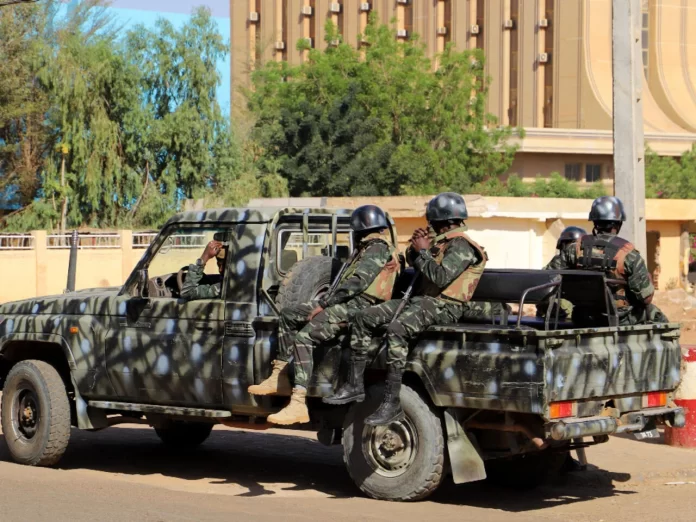In a defiant message on social media, Niger’s President Mohamed Bazoum assured the nation that hard-won achievements would be safeguarded, as soldiers announced a coup and took him captive. The troubles began when troops from the presidential guard captured the 64-year-old leader in the early hours of Wednesday.
Niger, a key ally in the fight against Islamist militants and home to US and French military bases due to its uranium-rich resources, found itself grappling with a complex situation. The US Secretary of State, Antony Blinken, pledged unwavering support to President Bazoum, while the UN and the European Union demanded his immediate release.
The capital, Niamey, witnessed a deserted atmosphere, partly due to heavy rain that thwarted a planned march in support of the coup. The citizens of Niger were divided in their reactions to the events unfolding before them. Some expressed shock and dismay, taking to the streets to call for a return to civilian rule. However, others welcomed the military’s actions, criticizing the ousted ruling party for corruption and its handling of the security situation, including the ongoing jihadist insurgency.
This coup has wider implications for the region’s stability, particularly concerning French and Western efforts to combat instability in the Sahel. Neighboring countries, Mali and Burkina Faso, have also experienced coups due to jihadist uprisings and subsequently moved closer to Russia after falling out with France.

The current situation puts into question the reliability of Niger as a safe base for Western forces. Western influence in the region appears to be waning, and Russia’s Wagner Group has been gaining ground with its interests seemingly more focused on enriching itself and extending Kremlin influence rather than nurturing better governance.
The jihadist groups in the region, affiliated with Islamic State and al-Qaeda, stand to benefit from the instability and lack of effective governance. Their efforts to sow discord and resentment among the local population may find fertile ground in the aftermath of the coup.
Niger’s Foreign Minister has urged the population to oppose the takeover, and mediation efforts are underway by neighboring countries and regional blocs to seek a resolution through dialogue. However, as of now, it remains unclear who truly holds the reins of power in Niger.
This latest coup underscores Niger’s history of political upheaval, with numerous attempts to seize power since gaining independence from France in 1960. The nation’s plight highlights the challenges faced by many African countries as they grapple with issues of governance, security, and foreign influences.
As the situation continues to unfold, the international community closely watches Niger’s struggle for democracy and stability, hoping for a peaceful resolution that will protect the interests of its citizens and maintain the fight against terrorism in the region.





